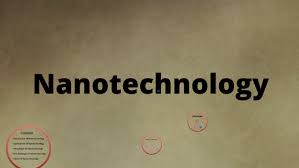DỊCH TRANSCRIPT & GIẢI CHI TIẾT ĐỀ THI IELTS LISTENING CAMBRIDGE 13-TEST 2 - PART 3
Questions 21 – 25
Choose the correct letter, A, B or C.
Planning a presentation on nanotechnology
21 Russ says that his difficulty in planning the presentation is due to
A his lack of knowledge about the topic.
B his uncertainly about what he should try to achieve.
C the short time that he has for preparation.
22 Russ and his tutor agree that his approach in the presentation will be
A to concentrate on how nanotechnology is used in one field.
B to follow the chronological development of nanotechnology.
C to show the range of applications of nanotechnology.
23 In connection with slides, the tutor advises Russ to
A talk about things that he can find slides to illustrate.
B look for slides to illustrate the points he makes.
C consider omitting slides altogether.
24 They both agree that the best way for Russ to start his presentation is
A to encourage the audience to talk.
B to explain what Russ intends to do.
C to provide an example.
25 What does the tutor advise Russ to do next while preparing his presentation?
A summarise the main point he wants to make
B read the notes he has already made
C list the topics he wants to cover
Questions 26 – 30
What comments do the speakers make about each of the following aspects of Russ’s previous presentation?
Choose FIVE answers from the box and write the correct letter, A-G, next to Questions 26-30.
Comments
A lacked a conclusion
B useful in the future
C not enough
D sometimes distracting
E showed originality
F covered a wide range
G not too technical
Aspects of Russ’s previous presentation
26 structure …………….
27 eye contact …………….
28 body language …………….
29 choice of words …………….
30 handouts …………….
SCRIPTS
TUTOR: Ah … come in, Russ.
RUSS: Thank you.
TUTOR: Now you wanted to consult me about your class presentation on nanotechnology – you’re due to give it in next week, aren’t you?
RUSS: That’s right. And I’m really struggling. I chose the topic because I didn’t know much about it and wanted to learn more, but now I’ve read so much about it, in a way there’s too much to say – I could talk for much longer than the twenty minutes I’ve been allocated. Should I assume the other students don’t know much, and give them a kind of general introduction, or should I try and make them share my fascination with a particular aspect? (Q21)
TUTOR: You could do either, but you’ll need to have it clear in your own mind.
RUSS: Then I think I’ll give an overview.
TUTOR: OK. Now, one way of approaching this is to work through developments in chronological order.
RUSS: Uh-huh.
TUTOR: On the other hand, you could talk about the numerous ways that nanotechnology is being applied.
RUSS: You mean things like thin films on camera displays to make them water-repellent, and additives to make motorcycle helmets stronger and lighter.
TUTOR: Exactly. Or another way would be to focus on its impact in one particular area (Q22), say medicine, or space exploration.
RUSS: That would make it easier to focus. Perhaps I should do that.
TUTOR: I think that would be a good idea.
RUSS: Right. How important is it to include slides in the presentation?
TUTOR: They aren’t essential, by any means. And there’s a danger of tailoring what you say to fit whatever slides you can find. While it can be good to includes slides, you could end up spending too long looking for suitable ones. You might find it better to leave them out. (Q23)
RUSS: I see. Another thing I was wondering about was how to start. I know presentations often begin with ‘First I’m going to talk about this, and then I’ll talk about that’, but I thought about asking the audience what they know about nanotechnology.
TUTOR: That would be fine if you had an hour or two for the presentation, but you might find that you can’t do anything with the answers you get, and it simply eats into the short time that’s available.
RUSS: So, maybe I should mention a particular way that nanotechnology is used, to focus people’s attention. (Q24)
TUTOR: That sounds sensible.
RUSS: What do you think I should do next? I really have to plan the presentation today and tomorrow.
TUTOR: Well, initially I think you should ignore all the notes you’ve made, take a small piece of paper, and write a single short sentence that ties together the whole presentation (Q25): it can be something as simple as ‘Nanotechnology is already improving our lives’. Then start planning the content around that. You can always modify that sentence later, if you need to.
RUSS: OK.
————————————
TUTOR: OK, now let’s think about actually giving the presentation. You’ve only given one before, if I remember correctly, about an experiment you’d been involved in.
RUSS: That’s right. It was pretty rubbish!
TUTOR: Let’s say it was better in some respects than in others. With regard to the structure. I felt that you ended rather abruptly, without rounding it off (Q26). Be careful not to do that in next week’s presentation.
RUSS: OK.
TUTOR: And you made very little eye contact with the audience, because you were looking down at your notes most of the time. You need to be looking at the audience and only occasionally glancing at your notes. (Q27)
RUSS: Mmm.
TUTOR: Your body language was a little odd. Every time you showed a slide, you turned your back on the audience so you could look at it – you should have been looking at your laptop. And you kept scratching your head, so I found myself wondering when you were next going to do that, instead of listening to what you were saying! (Q28)
RUSS: Oh dear. What did you think of the language? I knew that not everyone was familiar with the subject, so I tried to make it as simple as I could.
TUTOR: Yes, that came across. You used a few words that are specific to the field, but you always explained what they meant, so the audience wouldn’t have had any difficulty understanding. (Q29)
RUSS: Uh-huh.
TUTOR: I must say the handouts you prepared were well thought out. They were a good summary of your presentation, which people would be able to refer to later on (Q30). So well done on that.
RUSS: Thank you.
TUTOR: Well, I hope that helps you with next week’s presentation.
RUSS: Yes, it will. Thanks a lot.
TUTOR: I’ll look forward to seeing a big improvement, then.

1. Mua bộ đề gần 400 bài ielts reading - Dịch và giải chi tiết Chỉ 199k bao gồm toàn bộ đề trong bộ Cambridge ( từ bộ 1 -18) và nhiều đề thi thực tế ( xem danh sách 400 đề ielts reading tại đây). Xem bài mẫu tại đây, Bài mẫu 1, bài mẫu 2, bài mẫu 3. Giải đề bao gồm phần dịch bài đọc, dịch phần câu hỏi, giải thích chi tiết, có thể tải về, in phần đề để luyện tập. Để mua bộ đề. Vui lòng điền thông tin theo form tại đây và thanh toán theo thông tin CK trong form.
2. Mua bộ đề Ielts listening từ Cam 10-18 - Dịch và giải chi tiết Chỉ 99k bao gồm phần dịch transcript, dịch câu hỏi, giải đề. Xem bài mẫu tại đây. Để mua bộ đề Vui lòng điền thông tin theo form tại đây và thanh toán theo thông tin CK trong form.
3. Đặc biệt dành tặng 100 bạn hoàn thành buổi học thử miễn phí khóa học Ielts Speaking online 1 kèm 1, các bạn sẽ được tặng bộ đề 400k bài Ielts reading và bộ đề Ielts Listening bộ Cam từ 10-18 gồm bài dịch và giải chi tiết, giải thích từ vựng khó ( thời hạn sử dụng trong vòng 2 tháng). Xem thông tin khóa học Ielts Speaking online 1 kèm 1 và đăng ký học thử tại đây.
ANSWER
21 B
22 A
23 C
24 C
25 A
26 A
27 C
28 D
29 G
30 B

.png)





